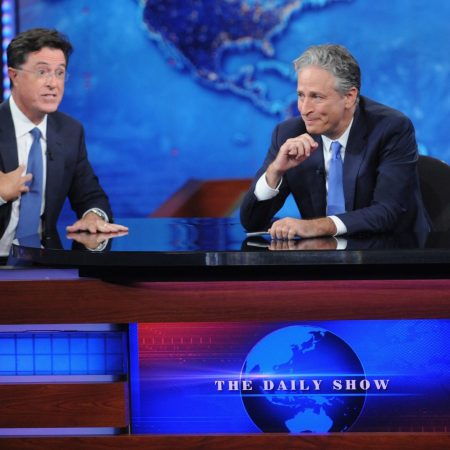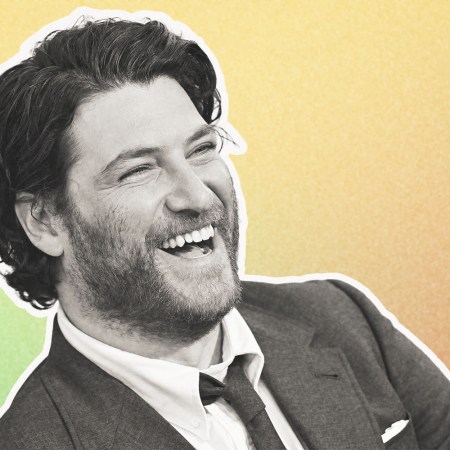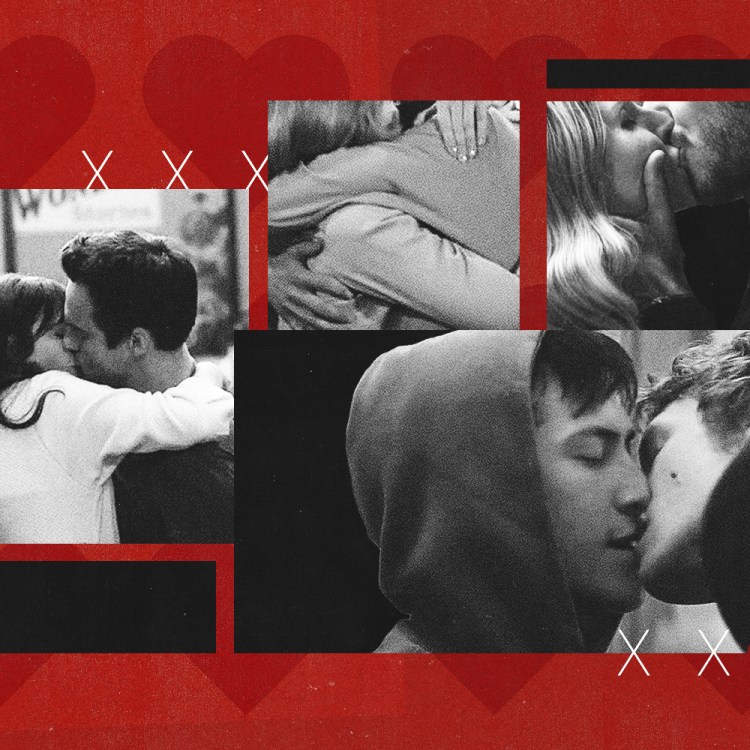In a climactic moment near the end of its new season’s first episode, I Think You Should Leave co-creator Tim Robinson’s character speaks from the heart: “When I was a kid, I fell into a river and a fish bumped me out of the water. I was supposed to die, but a fish bumped me out with its nose. That was the earth telling me I was supposed to do something great.” It’s funny, in part, because it’s true: Robinson has done something great. His and Zach Kanin’s show is an unlikely, yet indisputable triumph, and with its most absurd season yet — a mile-high bar to clear — I Think You Should Leave continues to cement itself as a modern sketch-comedy classic.
For as esoteric and off-kilter as this show is, it’s remarkable how culturally far-reaching it’s become. Since its debut on Netflix to little (or was it no?) fanfare in the spring of 2019, it’s given us the “hot dog guy,” a sketch-turned-reaction meme even a member of Congress once made use of. It’s made us question the quality of our car ideas, and reminded us multiple times that the bones are the skeletons’ money (and so are the worms). It’s even taken root inside the cultural collider of our time, TikTok, where Robinson’s silliness is currently splayed across tens of thousands of videos. Writing for The New Yorker, Rachel Syme called the show “a love language” — you can have a conversation entirely by quoting it, and in my experience, fans of all kinds often do, whether they’re comedy casuals or alt-sketch snobs. The show’s contortions of the English language have a way of lodging themselves irretrievably inside the mind.
Considering how quick Netflix has been to cancel even its most critically beloved originals, the continued success of I Think You Should Leave is a more-than-minor miracle. There’s a case for it as the prototype of what the fickle streamer seems to want: shows that are inexpensive to produce, endlessly rewatchable and always apt to “go viral,” converting new advocates along the way. Robinson and Kanin, who met writing for Saturday Night Live before co-creating Detroiters (a gem!), then I Think You Should Leave, have taken their time with the show and kept it concise, dropping three six-episode, roughly 100-minute seasons across five years. You can take down a season in one sitting, but you’ll be back, perhaps immediately. There’s a considered care that goes into every detail, from the sketch sequencing to the bumpers between them — pairing colorful visuals with snappy soul music, they keep you smiling after the best bits and rescue the vibe after any that may not have clicked for you.
The fear with a show this special is that it will lose its luster and fade away, as opposed to burning out. (We’re currently enjoying a brief moment in which Big TV is willing to leave audiences wanting more, as seen on Sunday’s Succession and Barry series finales.) But in its latest season, I Think You Should Leave continues to split the dual goalposts of doing what it does best while also growing into a fuller expression of itself. Season 3, more than ever, feels like wandering around in Robinson and Kanin’s brains. The season’s cavalcade of guest star faces, both fresh — Jason Schwartzman, Ayo Edebiri, Fred Armisen, Beck Bennett, Mitra Jouhari — and familiar — Sam Richardson, Will Forte, Patti Harrison, Tim Heidecker, Conner O’Malley, Biff Wiff, Tim Meadows (who also guested on Detroiters) and Shawntay Dalon — all feel tapped into the show’s hive mind, to the point you can easily pick out each sketch’s “Tim character,” even if Robinson isn’t actually playing them.
“Absurd” is a word often applied to I Think You Should Leave, and rightfully so. Remember that “something great” Robinson’s character knew he was destined for? In the same breath, he swears it’s “The Driving Crooner,” a fedora and cigar car window decal-assisted sight gag that he is certain can be a profitable business, somehow. But to describe the show as “absurd” is to short-change it, because, in these new episodes especially, there are onion-like layers to that absurdity, as if Robinson, Kanin and their fellow writers felt challenged to deliver a depth to match the show’s explosive popularity. The Driving Crooner is both patently ridiculous and surprisingly profound — think about it for a few seconds and you realize Robinson’s character, and perhaps, on some level, Robinson himself, is questioning his very purpose, as if to say, “Is this silly joke all I’m capable of?”
Repeatedly, the new season returns to characters who obsess over their need to get a laugh. The final episode opens with a sketch in which an office worker riffs on a training video (“Back away, banana breath! What the hell did you just eat, a banana?”), then proceeds to derail the rest of the meeting by delighting in her goofy joke and her co-workers’ (pleasantly tepid) reaction to it. The episode ends with O’Malley playing the purveyor of “Tasty Time Vids,” a comedy (question mark?) Instagram channel he stresses over endlessly, to the neglect of his actual day job at a political campaign office. Bookended by those sketches, the episode reads like a two-pronged reaction to I Think You Should Leave’s acclaim, weighing fulfillment in one hand and obsession in the other.
Bob Odenkirk and Bill Maher Talked Comedy History on a New “Real Time”
All that and a discussion of democracy, tooEven while considering the strain of its own success, the show maintains its distinct point-of-view, subtly tweaking its formula to reveal new facets. It still keys on characters making asses of themselves, but the ways in which they do so resonate more than ever. Robinson is a father of two, and in two late-season sketches featuring Wiff and Schwartzman, you see the writing wrestling with the parental push-and-pull of gaining a family, but losing one’s independence. The struggles of adapting to an increasingly virtual reality, getting along with co-workers, neighbors and kids, dating and making new friends, all bubble to the surface. I Think You Should Leave remains fascinated with social performance, pushing the artifice of public niceties, reality and talk shows, sitcom laugh tracks and corporate pep talks to, then beyond, their logical extremes. It treats reality as elastic, gleefully bending and twisting it, but never past the point of recognition.
There’s a paradox at work in this season — it feels more prismatic, yet also more specific. “Zach and I talk about this all the time,” Robinson told the Los Angeles Times last year. “What you find funny each year you do comedy — I feel like it gets narrower and narrower. So there are things from Season 1 that I feel like we probably wouldn’t have written in Season 2.” With that narrowing comes a show that feels increasingly like itself, without ever quite taking the same shape twice. In the finale, Richardson plays a game show host whose half-baked idea for a game proves impossible to stage — like Chunky before him, the Metaloid Maniac struggles to live up to his billing. A Robinson character reminiscent of the one who once pushed Calico Cut Pants sells a balding friend on Gelutol, a baldness cure he thinks gives him the right to dictate the man’s hair styles going forward (“You pay for the seeds, you get to look at the trees”). And like the guy who once dubbed over Bozo, multiple Robinson characters delight in old-school schtick this season, despite the overwhelming evidence no one around them is enjoying it.
It’s this persistent DNA that helps make the show so special — success hasn’t changed it. “We just want the stuff that we’re doing to make us laugh,” Robinson told the Times, a bellwether of creative, comedic instinct staying true to itself. From his ranting, raving, Emmy-winning performances to his work as a writer, Robinson’s Driving Crooner-esque destined creation should be remembered as an all-timer of the form.
This article appeared in an InsideHook newsletter. Sign up for free to get more on travel, wellness, style, drinking, and culture.

























